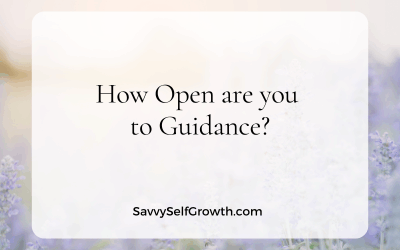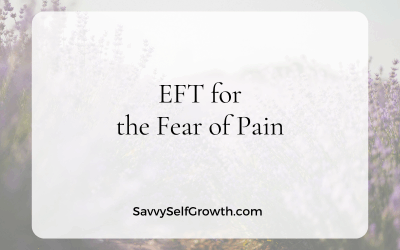I’ve noticed how often people with chronic pain and anxiety about it, could also fall into the group that we call ‘Highly Sensitive People’ or HSPs.
What is an HSP?
30% of the population are born with a more sensitive nervous system, and they’re known as Highly Sensitive People. I dedicated a whole article describing my understanding of a highly Sensitive Person (including many resources and research sites). The article will soon be on this website.
(Side Note: an HSP is ‘not‘ someone who became more sensitive over time, due to traumatic experiences. A nervous system was born with this trait, just like introversion. No amount of tapping, meditation, trauma processing or any other work will change this trait. like we cannot change the colour of our eyes.)
What Happens for an HSP with chronic pain?
Our nervous systems are more sensitive to external stimuli (light, sound, temperature etc) and internal sensations (pain, tingles, and so on). A 4 out of 10 headache to a non-sensitive person is quite manageable. Yet that same level of pain might feel like an 8 out of 10 to a sensitive person. It can completely take over our day and make us unable to function.
I’ve noticed this conundrum in the sensitive community:
Our nervous systems are sensitive, so pain and discomfort affect us quicker and more often. Then, additional layers happen. Because we’re affected more easily, we become even more sensitive to pain or discomfort.
Why does that happen?
Big parts of our brain are designed to keep us safe. When it detects something ‘unsafe’, it keeps a record of it and warns us next time to avoid it. The brain uses alarm signals to warn us – like fear, panic, or anxiety. The fight or flight system is kicked off when we notice something that is ‘like’ a scary thing in the past.
The more sensitive our nervous systems are, to begin with, the more we’ll feel pain or discomfort. And, unfortunately, the more heightened our senses will likely become. And therefore, the more pain we might experience.
It’s a nice old loop we have here.
Sensitive people can become increasingly sensitive and over-reactive to sensations in the body. This is a nervous system response. And the good news is, we can do something about.
A Personal Experience
In my own recovery journey from falling down a flight of stairs, I learned some important things that have helped me manage panic and anxiety about pain.
I lived with medical anxiety for many years, and am so familiar with the awful cycle: I feel a slight sensation in a tooth, and instantly feel the adrenaline rush, shallow breathing, panic mode…. And the next moment the pain is worse, and my mind zooms to the awful future of how much pain I’m going to be in by next week. Suddenly, I see myself in the grave with my bereft family next to it. Familiar?
#funnynotfunny – and true.
I can probably fill a book with what I’ve learned in this recovery journey. And since many excellent books and podcasts already exist, I’m going to point to those and highlight a few things.
Pain Education
From the excellent book “The Way Out” by Alan Gordon (2021):
“Fear helps us identify danger, so it magnifies potential threats in order to protect us. Noises seem louder when we’re afraid. And people are more sensitive to smell when they’re on high alert. But fear doesn’t just magnify our senses. Fear also magnifies danger signals like pain.”
(Sidenote: That sounds like a person with a highly sensitive nervous system, right? Noises are louder, smells are more vivid, light is brighter…)
A few paragraphs later:
“Being in a state of high alert can change the way we perceive signals from our body. Fear can create pain.”
It’s worth pausing here. Just the fact that we experience some fear can cause pain to start, or increase. It doesn’t matter whether it’s a sudden big fear (like a pandemic or a loved one’s health that’s declined), or little niggly worries that keep festering in the background, 24/7, underneath our conscious awareness. Feeling unsafe (fear) can create pain.
The role of fear and being on high alert in chronic pain
Fear is universal, we all experience it daily. It has a purpose: it warns us to stay away from danger. It’s not a bad thing, and no-one should feel ashamed that they feel fear! However, it’s good to be aware that fear amplifies danger signals. Danger signals put us on high alert so we can escape the threat. Pain is a danger signal. Therefore, fear can create pain.
Here is a fantastic, simple illustration of how this works, by a foremost pain scientist, Dr Moseley, who experienced it himself. He’s quite entertaining, too!
TEDxAdelaide – Lorimer Moseley – Why Things Hurt
When we talk about chronic pain, there are mainly three factors that can keep us on high alert:
One: Current stressful situations and big life changes (job, kids, health, money) fall in this category. Life changes can affect us even if it’s a positive event like getting married to the love of our life, or moving to an ideal new home.
Two: Our past is a big factor that can keep us on high alert. Even though the actual events are over, the results linger in our nervous system. If we had many Adverse Childhood Experiences (ACE’s), we have a nervous system that has been ‘primed’ to react more to stress in the now. We’ll be more sensitive to fear and feeling unsafe. And that keeps that nice old cycle of fear-pain-more fear-more pain in place.
Three: The last factor that keeps us on high alert and sensitive to chronic pain, is these 3 habit-behaviours:
Worrying
Thoughts can circle in your head, like:
- Is my client mad at me?
- Is my income going to cover my expenses?
- Why did I say that?
- Do they think I’m stupid?
- Is there spinach stuck in my teeth?
What’s your version? What are your worry thoughts?
Putting Pressure on Yourself
Examples like:
- I have to do well in my test
- I have to earn x amount
- I should meditate 30 mins a day
- I have to exercise 7 days a week
- I need to do excellent work
What’s yours? Write down 1.
Self-critcism
Are you subject to getting down on yourself with self-talk like:
- I make stupid mistakes
- I should have done better
- Can’t I do anything right?
What’s yours? Write down 1.
The Missing Piece: EFT
This book is a brilliant resource if you’re an HSP wanting to be pain-free. It will help you gain an excellent understanding of pain, anxiety, and fear.
The Way Out provides fantastic resources (education and exercises) to help retrain the brain to be less reactive to danger signals in the body and environment. It’s helped me enormously to understand my body’s reactions and knowing what to do to calm it.
The part I still think this book is missing, is EFT (good ol’ tapping) to help us manage and clear the fear, anxiety, and panic. EFT can also help us work with (and clear) some of the root causes – those things in the past that we’re not free of yet, and keep us feeling unsafe.
If a Highly Sensitive Person had a rough childhood, these fear => danger => pain signals are even stronger. EFT tapping is an excellent tool to help minimise or even eliminate an over-active fear response.
EFT Resources
If you’re an HSP living with pain and not sure how to use EFT tapping, visit my page with most of my articles about EFT. Or, purchase my mini-EFT course so you can follow step by step. It includes a workshop recording, PDFs and other resources to help you understand how to use EFT for self-help.
Or, visit my Youtube Channel where there are many tapping videos for various topics. And if you need personal support, please reach out here. No-one should have to go through pain or panic about it alone!




